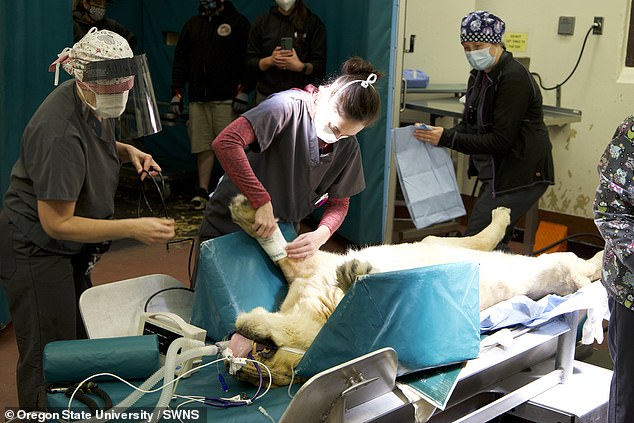A lioness named Chobe, once held at Joe Exotic’s infamous Tiger King zoo, has undergone a successful surgery after suffering complications caused by years of inbreeding. Rescued in 2018, the five-year-old lioness now lives peacefully at the WildCat Ridge Sanctuary in Oregon, where dedicated veterinarians recently performed a critical operation to save her life.
This story is a moving reminder of how compassion and medical care can restore health and dignity to animals once exploited for entertainment — and why wildlife sanctuaries play such a vital role in protecting vulnerable species.
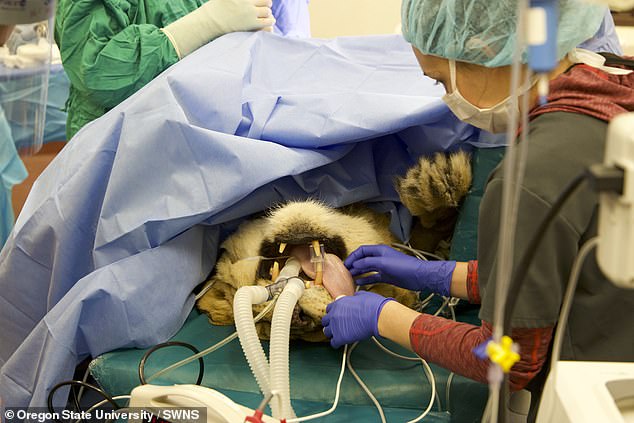
From Captivity to Care
Chobe’s journey began in the chaotic environment of Joe Exotic’s Oklahoma zoo, known from the Netflix series Tiger King. There, decades of uncontrolled breeding produced lions and tigers with severe genetic defects. Sanctuary officials describe Chobe as a “mismatch of genetics,” with a shortened body and stocky frame caused by years of inbreeding.
After her rescue, Chobe was given a safe home at WildCat Ridge Sanctuary, where she quickly became a favorite among caretakers for her expressive personality and playful nature. But in early 2025, staff noticed something was wrong — Chobe had stopped eating and appeared lethargic.
A CT scan at Oregon State University’s Lois Bates Acheson Veterinary Teaching Hospital revealed the cause: a distended uterus due to a severe infection known as pyometra. Left untreated, the condition can be fatal, as toxins build up in the bloodstream and damage vital organs.
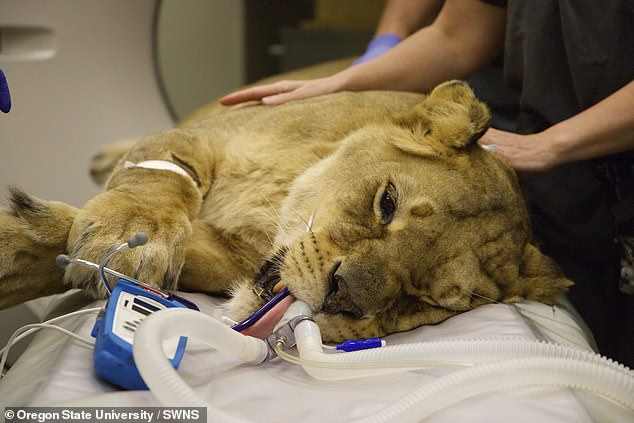
A High-Stakes Operation
Veterinary surgeon Dr. Katy Townsend, associate professor at OSU’s Carlson College of Veterinary Medicine, led the procedure. “Essentially, it’s like spaying a domestic cat — but on a mega scale,” she explained.
During the operation, which lasted several hours, doctors successfully removed Chobe’s uterus and ovaries. Images from the surgical suite show the massive feline sedated and surrounded by a specialized team ensuring every movement was carefully managed.
“Surgery went really well,” Dr. Townsend said. “We were able to cleanly remove everything in a short time. We expect her to make a full recovery.”
The operation was a triumph of modern veterinary medicine, demonstrating how advanced imaging and surgical techniques developed for household pets can be scaled up for large wildlife species.
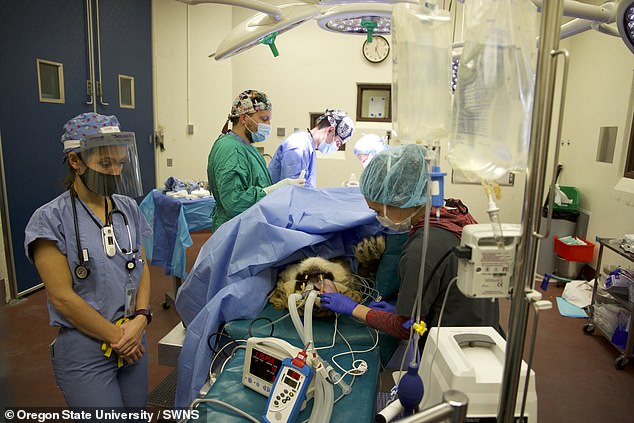
Mid-Article Read
Before continuing, explore this inspiring story:
Full Story: Man Loses 360 Pounds Naturally – Internet Rallies to Support His Next Step
The Toll of Inbreeding in Captivity
Experts say Chobe’s medical issues are the direct result of unethical breeding practices once common at private roadside zoos. Animals like Chobe were often bred repeatedly without proper records, leading to genetic defects that compromise organ function, bone structure, and fertility.
Sanctuary executive assistant Ian Ford described Chobe as “a little stubby in appearance, like a giant guinea pig,” but emphasized her gentle temperament. “She’s such a sweet, expressive animal,” he said. “We just want her to live peacefully and enjoy her days with her companion lioness, Kariba.”
Inbreeding doesn’t just impact individual animals — it also threatens long-term conservation efforts by diluting genetic diversity. Sanctuaries and accredited zoos now work to ensure that breeding serves a legitimate conservation purpose rather than profit-driven display.
Hope and Healing at WildCat Ridge Sanctuary
Following the surgery, Chobe is recovering comfortably at the sanctuary, surrounded by caretakers who have followed her journey since her rescue. Staff members say her appetite is returning and she’s already showing signs of her old playful behavior.
“Just having her roll in the grass with Kariba again will be a victory,” Ford said. “We’re grateful she pulled through and can get back to living the life she deserves.”
The WildCat Ridge Sanctuary, located in Scotts Mills, Oregon, is home to more than 70 rescued big cats and exotic animals. Each resident has a story of neglect, exploitation, or abandonment — and each has found a permanent home where they will never again be caged for entertainment.
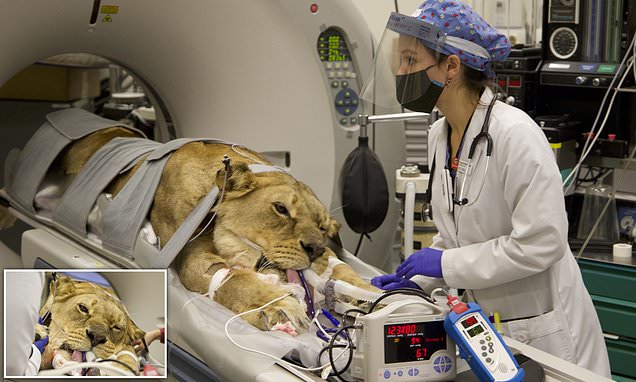
Related Read
You might also enjoy this story:
Full Story: Science Confirms Kelly Brook’s Perfect Body – But the Real Message Is Bigger Than Beauty
A Symbol of Change in Wildlife Care
Chobe’s story echoes a larger shift in how society views big cats and nature itself. After the release of Tiger King, public scrutiny of private zoos increased dramatically. Many of Joe Exotic’s former animals have since been relocated to sanctuaries where they receive proper nutrition, medical treatment, and enrichment.
Veterinarians hope that cases like Chobe’s will raise awareness about the physical and psychological toll of captivity. “These animals were bred for profit, not for health,” said Dr. Townsend. “But with care and compassion, we can give them the quality of life they always deserved.”
Final Thoughts
Chobe’s successful surgery is more than a medical achievement — it’s a story of second chances and the power of human empathy. From the darkness of exploitation to the safety of sanctuary life, her recovery represents hope for other rescued animals still waiting for freedom.
As Chobe continues to heal, her journey reminds us that every act of rescue, every hour of care, and every voice raised for wildlife protection helps build a kinder world — one where no creature suffers for human entertainment.
